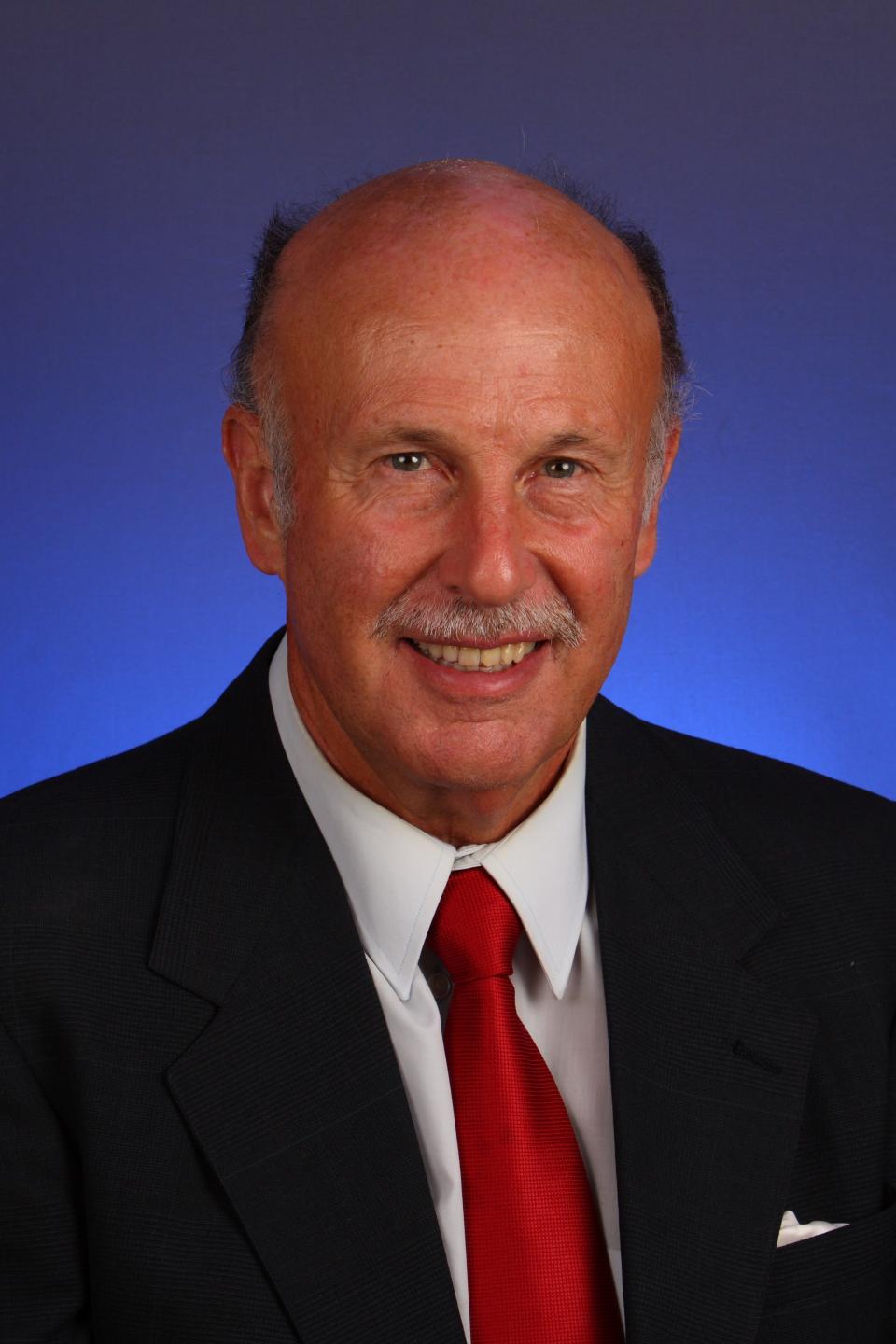The “Little Giant” put his nation first even after his loss| Opinion
- Oops!Something went wrong.Please try again later.
- Oops!Something went wrong.Please try again later.
- Oops!Something went wrong.Please try again later.
Can you imagine an American history in which Abraham Lincoln is a little more than a paragraph in an Illinois state history books and simply a footnote in general U.S. history textbooks? That footnote would identify Lincoln as a little-known, oft-defeated politician from Illinois in the mid-nineteenth century— who got elected to only one term in the House of Representatives where he took an unpopular stand against the United States’ War with Mexico.

It seems unimaginable! The truth is, if the Democrats had not been so divided in 1860 and stood behind their main candidate, Senator Stephen Douglas would have been elected president and Lincoln would have returned to Springfield, Illinois, defeated once again.
Instead, the dominating party for 40 years was so divided that the 1860 convention collapsed and three Democrats—Douglas, John Breckinridge and Tennessee’s very own John Bell—found themselves on the presidential ballot, bleeding votes from each other!
Hear more Tennessee Voices: Get the weekly opinion newsletter for insightful and thought provoking columns.
Friends and opponents alike called Stephen Douglas "the little giant." His height was 5’ 4” at most. He developed the popular sovereignty doctrine allowing all new states and territories to decide by popular vote the status of slavery for themselves.
Fast forward to 2020: a bitter election campaign. Between the wild and crazy accusations, toxic bitterness, disrespect between major candidates and the contested outcome—civility and respect seem like only a memory.
Lincoln and Douglas met on February 17, forging a working partnership. Both earnestly desiring to preserve the Union during such perilous times. Then meeting again only a week before Inauguration, they re-established personal respect and friendship and vowed common purpose—holding the Union together.
“Our Union must be preserved,” Douglas said publicly. “Partisan feeling must yield to patriotism. I am with you, Mr. President, and God bless you.”
Later, Lincoln declared, “What a noble man Douglas is!”
As crisis at Ft. Sumter grew more threatening, Lincoln consulted Douglas for advice. Afterward, Douglas made a public statement that he supported Lincoln in “all his constitutional functions to preserve the Union.”
As he traveled back home to Illinois, Douglas delivered speeches vowing support for Lincoln in all his constitutional functions to preserve the Union. One career politician supporting and praising the candidate whom he once defeated for Senate, but now was his president.
The shortest man in national politics respecting the tallest man in politics. Upon Douglas' death, Lincoln directed all government offices be closed for the funeral and that the White House and state department be draped in mourning for 30 days.
Hear from Tennessee's Black Voices: Get the weekly newsletter for powerful and critical thinking columns.
A note found in Lincoln’s papers had the President praising Douglas: “His name fills the nation, and it is not unknown, even in foreign lands.”
Two attorneys from Illinois. Two opponents. Two debaters. Two presidential candidates who are both fully committed to save the Union. One was the “shortest candidate” and the other the “tallest candidate” of the same era. There was the little giant in the shadows of Lincoln’s inauguration, reaching out to hold the new president’s famous stove-pipe hat while he delivered his address.

Your state. Your stories. Support more reporting like this.
A subscription gives you unlimited access to stories across Tennessee that make a difference in your life and the lives of those around you. Click here to become a subscriber.
Few, if any Americans, would want to revise history to put Douglas in Lincoln’s place. But few, if any, could deny that Stephen Douglas was a good man who loved his nation.
The little giant never stood taller than when he put his nation first and publicly respected and supported his former opponent. Had his own party been united. None can doubt his election—nor doubt the greatness he could have achieved as President.
Dr. Perry Cotham is a retired professor with tenures at Lipscomb University in History and Political Science and MTSU in Communication Studies.
This article originally appeared on Nashville Tennessean: The story of the little giant and Abraham Lincoln

